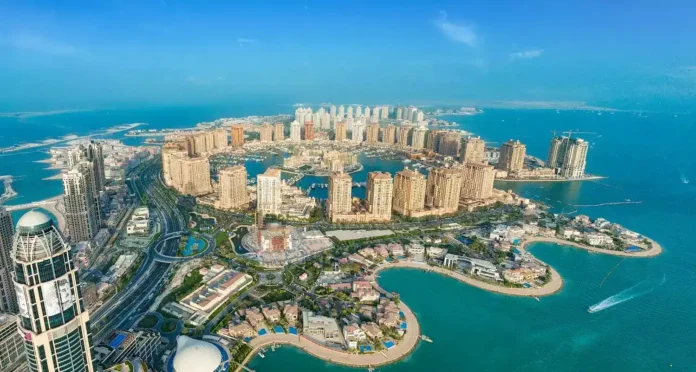Doha, Qatar – February 12, 2025 – Qatar Tourism hosted the 51st meeting of the UN Tourism Regional Commission for the Middle East, bringing together high-level delegations from 13 member states to assess the region’s tourism sector and set priorities for future growth.
The meeting underscored the Middle East’s rapid post-pandemic recovery and the importance of regional cooperation in sustaining this momentum.
Middle East’s Post-Pandemic Recovery Leads Global Tourism
The UN Tourism organization praised the Middle East for achieving the fastest post-pandemic recovery worldwide in 2024.
While other regions struggled to regain pre-pandemic visitor numbers, the Middle East’s strong regional collaboration and investment in tourism infrastructure enabled a swift rebound, positioning it as a key player in the global travel industry.
Discussions at the meeting focused on strategies to maintain this growth, emphasizing sustainability and deeper regional cooperation.
Delegates highlighted the necessity of long-term planning to ensure that the sector remains resilient against future challenges, while also capitalizing on emerging trends in tourism.
Kuwait Assumes Chairmanship for 2025-2027 Term
A key outcome of the meeting was the appointment of Kuwait as the new Chair of the UN Tourism Regional Commission for the Middle East for the 2025-2027 term.
This milestone underscores Kuwait’s growing role in regional tourism development. As Chair, Kuwait will play a crucial role in setting policies, shaping regional strategies, and fostering cooperation among member states.
Alongside Kuwait’s new leadership role, Qatar was named First Vice-Chair, and Iraq was appointed Second Vice-Chair.
This leadership structure aims to strengthen regional collaboration and drive collective efforts in advancing the tourism industry.
Kuwait also announced plans to host the 52nd Regional Meeting in 2026, reinforcing its commitment to fostering dialogue and innovation in tourism.
Qatar’s Expanding Role in Global Tourism
Qatar’s appointment as First Vice-Chair reflects its rising influence in the global tourism sector.
The country has made significant investments in infrastructure and tourism services, leveraging major events like the FIFA World Cup Qatar 2022™ to boost its global tourism standing.
Qatar’s continued commitment to tourism growth aligns with its broader economic diversification goals, which prioritize sustainable and long-term development.
Sports Tourism in Focus
On February 13, 2025, Qatar Tourism followed up the UN Tourism meeting by hosting the “Sports Tourism and the Tourism Industry After the World Cup” conference.
Experts from the tourism and sports industries convened to discuss how Qatar’s investment in sporting infrastructure and events can be leveraged for long-term tourism growth.
The conference explored ways to maintain the momentum from the FIFA World Cup, emphasizing the role of technology in enhancing sports tourism experiences.
Delegates also highlighted the benefits of regional cooperation, suggesting that a unified Middle Eastern approach to sports tourism could attract more international visitors.
Shaping the Future of Middle Eastern Tourism
With Qatar and Kuwait at the forefront of regional tourism initiatives, the Middle East is poised to further solidify its position as a leading global travel destination.
As the region focuses on sustainability, innovation, and collaboration, international travelers can expect expanded tourism offerings and a richer travel experience in the years ahead.
This article was created using automation technology and was thoroughly edited and fact-checked by one of our editorial staff members

